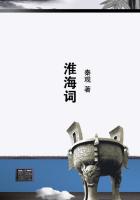At the ranch, whither they rode in haste, Luck meant to leave his boys and go on with the sheriff to town. But the Happy Family flatly refused to be left behind. Even old Aleck Douglas--whom years and trouble had enfeebled until his very presence here with Jean and Lite was a health-seekiing mission in the wonderful air of New Mexico--even old Aleck Douglas stamped his foot at Jean and declared that he was going, along to see that "the boy" got a square deal.
There wouldn't be any railroading Luck to the pew for something he didn't do, he asserted with a tragic meaning that wrung the heart of Jean. It took Lite's arguments and Luck's optimism and, finally, the assurance of the sheriff that Luck was not under arrest and was in no danger of it, to keep the old man at the ranch. Also, they promised to return with all speed and not to keep supper waiting, before the two women were satisfied to let them go.
"Oh, Luck Lindsay," Rosemary bethought her to announce just as they were leaving, "you better keep an eye out for Annie, while you're in town. She's gone--and the dog and all her clothes and everything. Maybe she took the train back to the reservation. I just wanted you to know, so if you feel you ought to bother--""Annie gone?" Even in his preoccupation the mews came with a stab. "When did she go?""We don't know. She set up an awful yowling when you boys went to work. And the dog commenced howling, till it was simply awful. So we rode in to town after the mail, and when we came back she was gone, bag and baggage. We didn't see anything of her on the trail, but she could dodge us if she wanted to--she's Injun enough for that."
So Luck carried a double load of anxiety with him to town, and the first thing he did when he reached it was to seek, not the beaten cashier who had accused him, but the ticket agent at the depot, and the baggage men--anyone who would be apt to remember Annie-Many-Ponies if she took a train out of town.
You might think that, with so many Indians coming and going at the depot, selling their wares and ****** picturesque setting for the curios which are purveyed there, that Luck stood a very slight chance of gaining any information whatever. But a Sioux squaw in Albuquerque would be as noticeable as a Hindoo. Pueblos, Navajos--they may come and go unnoticed because of their numbers. But an Indian of another tribe and style of dress would be conspicuous enough to be remembered. So, when no one remembered seeing Annie-Many-Ponies, Luck dismissed the conjecture that she had taken the train, and turned his attention to picking up the trail of the bank- robbers.
Here the Happy Family, with Applehead and Lite Avery, had managed to accomplish a good deal in a very short time. The Native Son, for instance, had ridden straight out from the bank into the Mexican quarter, as soon as he learned that the red automobile had gone up Silver Street and turned south on Fourth. By the time Luck reached the bank Miguel came loping back with the news that the red machine had crossed the lower bridge and had turned up toward Atrisco, that little Mexican hamlet which lies between the river and the bluffs where the white sand of the desert spills over into the nearest corrals and little pastures.
The others had learned definitely that Bill Holmes had manipulated the fake camera while the bank was being robbed, and that the man with him, who bad also driven the machine, was a certain chauffeur of colorless personality and an unsavory reputation among other drivers; and that the number of the automobile was a matter of conjecture, since three different men who were positive they remembered it gave three different numbers.
In company with the sheriff they called upon the cashier, who was in bed with his head bandaged and his nerves very much unstrung. He was much calmer, however, than when he had hysterically accused Luck of betraying him into putting the money out to be stolen. He admitted now that he was not at all sure of the voice which talked with him over the phone; indeed, now when he heard luck speak, he felt extremely doubtful of the similarity of that other voice. He protested against being blamed for being too confiding. He had never dreamed, he said, that anyone could be so bold as to plan a thing like that.
It all sounded straight, about the spoiled negative and so forth. He was very sorry that he had caused Luck Lindsay any inconvenience or annoyance, and he begged Luck's pardon several times in the course of his explanation of the details.
They left him still protesting and apologizing and explaining and touching his bandaged head with self-pitying tenderness. In the street Luck turned to the sheriff as though his mind was made up to something which argument could not alter in the slightest degree.
"I realize that in a way I'm partly responsible for this," he said crisply.
"The scenes I took the other day made this play possible for Ramon and his bunch. What you'd better do right now is to swear Applehead and me in as deputies--and any of the boys that want to come along and help round up that bunch. We'll do it, if it's to be done at all. I feel I kind of owe it to that poor simp in there to get the money back--sabe? And I owe it to myself to bring in Ramon and Bill Holmes, and whoever else is with 'em on this; young Rojas we know is for one.""Where do you aim to look for 'em, if you don't mind telling?" Hank Miller was staring doubtfully down at Luck.















